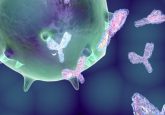NanoString® launches its first commercial diagnostic product
Prosigna™ Breast Cancer Gene Signature Assay is launched in the EU and Israel.
Seattle-based company NanoString® Technologies, Inc. (WA, USA) has launched the Prosigna™ Breast Cancer Prognostic Gene Signature Assay, its first in vitro assay. The assay is used with its nCounter® diagnostic system and has been made commercially available in the EU and Israel. The Prosigna assay received EU regulatory clearance in September 2012 and was validated in two clinical studies using more than 2400 patient samples. Results were presented at the 2011 and 2012 San Antonio Breast Cancer Symposium.
The Prosigna assay gives an individualized risk assessment in early-stage post-menopausal breast cancer patients with hormone receptor-positive stage I or II disease, allowing diagnosis of subtype classification and giving a prognosis score. The assay is based on detection of the PAM50 gene signature, first characterized by Charles Perou (University of North Carolina, Chapel Hill, NC, USA) and colleagues. Perou and colleagues found PAM50 screening to be more effective at subtyping breast cancer than immunohistological methods or clinical factors. PAM50 is a set of 50 genes identifying intrinsic breast cancer subtypes, allowing the classification of tumors into one of four subtypes. NanoString says this can enhance treatment decisions and give actionable predictive and prognostic information.
The Prosigna assay gives a prognostic score for the patient, referred to as the risk of recurrence (ROR) score. This score estimates the probability of developing breast cancer again within 10 years in post-menopausal patients with hormone receptor-positive early-stage breast cancer, who have previously received endocrine therapy.
The assay works with NanoString’s nCounter Analysis System, which can process up to 800 targets in a single reaction. The system is fully automated and requires only 15 minutes of hands-on time. NanoString have announced that the Prosigna assay can be offered through qualified pathology laboratories, allowing oncologists and pathologists the robust diagnostic tool locally. The nCounter system is highly sensitive and precise and is cost-effective. There is no amplification step, which reduces experimental bias.
The nCounter collects data on the nucleic acid targets by taking images of immobilized fluorescent reporter probes through a microscope objective lens. Two probes are used per gene: one is the fluorescent signaling probe, the other is the capture probe, which allows the complex to be immobilized in the nCounter cartridge for data collection. Color codes on the cartridge surface act as barcodes to identify the target. The system processes the data internally and gives the operator a quantitative assay result including a count number for the identified targets.
“Prosigna provides physicians and their patients access to analytically and clinically validated genomic information that can impact important treatment decisions, without the need to send precious samples to a centralized reference lab that may be overseas,” said Brad Gray, President and Chief Executive Officer of NanoString Technologies. “Our launch in the EU and Israel marks the beginning of our efforts to market Prosigna globally. This is a significant milestone for NanoString as we launch our commercial diagnostics business and work toward additional regulatory marketing authorizations.”
The nCounter Analysis system was introduced in 2008 and has now been optimized as a diagnostic platform. The system can rapidly and simultaneously quantify the expression of hundreds of genes, miRNAs or copy number variations, from samples including formalin-fixed paraffin embedded tissue, whole RNA and lysates. The technology has the potential for a wide range of applications, including research and translational medicine uses, for example, applications in biomarker discovery and validation. The nCounter Analysis System is currently available for research use only in North America.
NanoString was founded in 2003 with an exclusive license to develop products based on the novel digital molecular barcoding technology, which was invented at the Institute for Systems Biology in Seattle by the team led by Leroy Hood. 2008 saw the launch of NanoString’s first commercial instrument system and the recent launch validates the system’s clinical potential.
J. Wayne Cowens, Chief Medical Officer for NanoString Technologies added, “I would like to extend my heartfelt thanks to the investigators and patients who participated in the two pivotal trials for Prosigna. We look forward to making Prosigna available to the many breast cancer patients in need throughout the EU and Israel.”
Sources: NanoString Launches Its First Commercial Diagnostic Product in the EU and Israel; nCounter® Analysis System; Prosigna.






